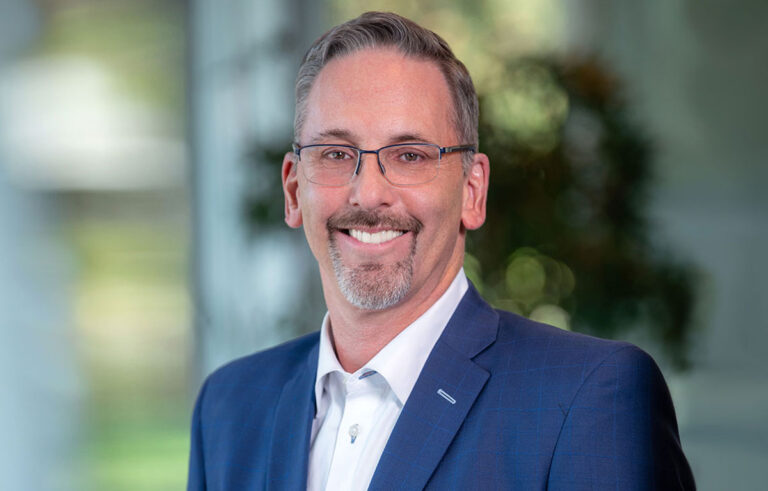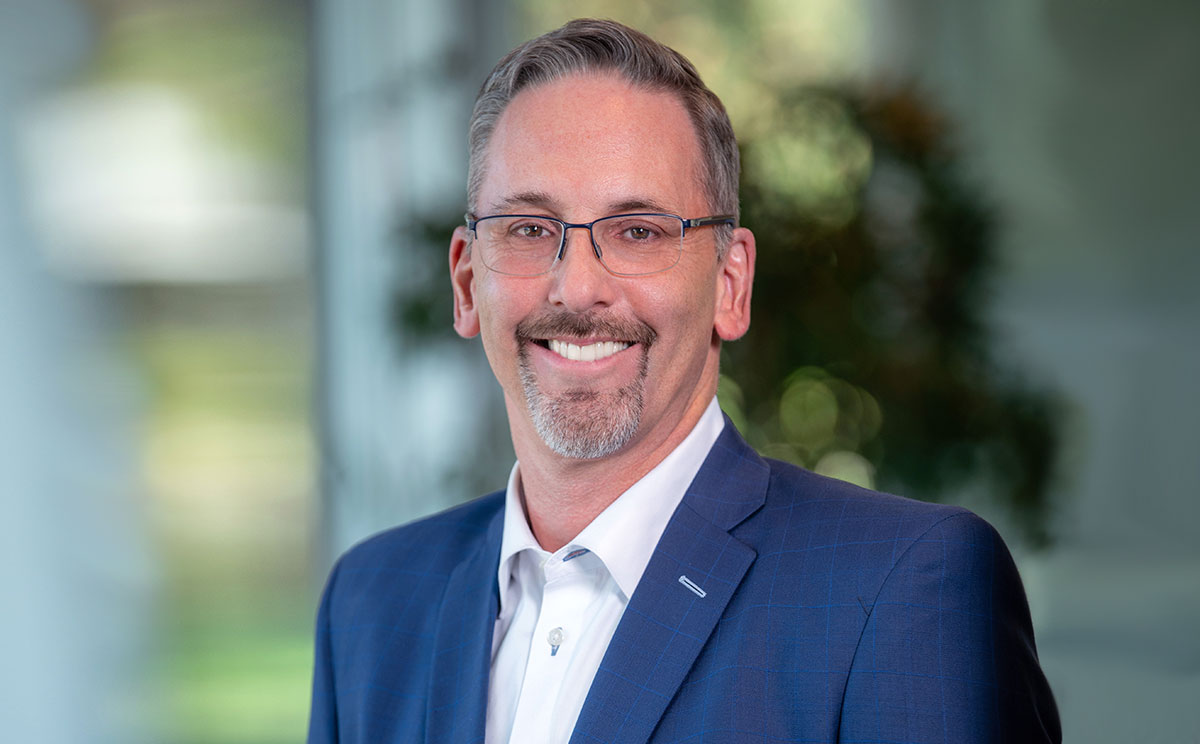No doubt, the economy is a little weird right now. Unemployment is low, but tech is laying off and banks are struggling and forecasters can’t make up their minds about whether a recession is coming next year, right when new graduates will be reaching for the first rung of their career ladder.
But an uncertain economy need not derail you, says Seth Feit, BS ’93, MBA ’95. As the group vice president of talent at Charter Communications Inc., Feit oversees recruiting, training and development for a $54 billion telecommunications company of nearly 100,000 employees.
He’s spent three decades watching economic cycles unfold with a close eye on hiring trends, but he still remembers all the uncertainty he felt in the early stages of his career, as he was trying to find his way. He’d co-op’d at three blue-chip companies — IBM, Arthur Andersen and Mobil — but didn’t know where he was headed next.
“I went through a lot of the confusion myself. ‘What do I want to do?’” Feit recalls wondering.
A fateful and fortuitous visit to Drexel’s career management office helped him find his future. Encouraged by a staff member he met there, Feit worked in that office for two years, teaching Co-op 101 while completing an MBA. He’s been helping people find jobs ever since.
At Charter Communications, Feit has held eight different positions over the last 24 years, during which time the company itself has undergone massive change. Feit started off at AOL, which merged with Time Warner, then he stayed with Time Warner Cable when it became an independent company. In 2016, Time Warner Cable merged with Charter, which operates under the Spectrum brand name and serves more than 32 million customers across 41 states. Along the way, he’s had to reinvent himself continuously, adapting to changes within his company and in the broader economy. A genuine desire to develop new skills is one of the most important keys to a successful and satisfying career, he says.
“I keep finding things that get me excited, and that’s one of the reasons I’ve sustained it this long,” Feit says.
Feit shares his advice with Drexel Magazine on how new alumni can put themselves in the best position to find a career as fulfilling as his own.
Drexel Magazine: How do you rate the short-term outlook for the job market?
Seth Feit: I don’t think we’re going to see as much movement. We’re already seeing trends that our turnover is reducing and there are not as many people looking for jobs, but there are still a lot of job postings out there. There are still people who haven’t gone back to the workforce or who have reassessed their lives and what they want to do for their careers.
From a broader perspective, I think we’re going to see people hesitating a little bit to start a job search or make the decision to take another role, and that will impact companies like mine that are still trying to hire. People might be more cautious.
You have to make sure you’re in a solid industry where you feel like there’s opportunity for you to grow. I think people will slow down on the job hopping we saw so much a year ago at this time.
DM: How would the outlook change, if the labor market becomes a bit less friendly to workers?
SF: At the end of the day, quality people, quality skills and quality backgrounds are going to be more important than anything. There was a war for talent, and the talent won. Candidates won. Employers could not fill enough jobs. So, the trends will come back, and it’ll become a candidate market again. I still think it is to some extent. But even if it gets a little dark over the next six to 12 months, it will rebound, especially as people reskill themselves. That’s a key part to riding out the wave: Make sure you’ve got the skills that employers want and need.
There could be some dark days for people, but if I’m thinking of the bigger picture, as people get laid off and are feeling like they’re not going to get a job, if they have sought-after skills that they can tweak and grow, they’re going to be needed by employers. But you’ve really got to think about what those skills and needs are in the future.
DM: How are career paths changing right now, and what can Drexel grads do to best set themselves up to take advantage of any shifts taking place?
SF: I don’t think a graduate coming out of Drexel now thinks they’re going to be at one company for 15, 20, 30 years. That’s one of the biggest things that has changed. Twenty or 30 years ago, if you were looking at someone’s background you’d question, ‘Why did they move jobs every 18 to 24 months?’ Now, it’s more acceptable.
I like to spin that to say why not grow your career in a dynamic industry where you can have multiple jobs like me and have progression in your career? We still try to sell that, but the career path has definitely changed. Depending on how an individual approaches it, there will probably be no two career paths that are the same. It’s going to require a lot of flexibility, a lot of adapting to new technology that comes out. It’ll be an exciting time to be out there in the workforce.
DM: How can Drexel students and recent grads use their co-op experience to their benefit in their search for jobs?
SF: It’s one of the best things Drexel students come out with. That co-op experience is very valuable. Drexel students can really stand out with the broad array of experiences that they bring. They should make sure they’re leveraging that on their resume and talking it up with prospective employers. It’s a huge advantage.
Some of your competition out there for jobs may have only done one internship or even two, and it would be an eight- or 10-week experience in the summer, whereas a typical Drexel student would have three different six-month experiences. Coming in with almost two years of real-life work experience is a nice advantage over others.
DM: You’ve been doing this for almost 30 years in different roles. Are there moments in the past that you think resembled where we’re at right now? What should Drexel graduates take away from those historical examples?
SF: I think back to the financial crisis in 2008. That impacted everybody. It impacted the whole economy. You had to weather the storm. Even during the pandemic, none of us had gone through anything like that. It was challenging to continue to hire people, and we had to adjust to virtual hiring practices. But we figured it out and we were able to continue hiring successfully.
Now, you should try to stay the course in uncertain times. That’s the advice I’d give the fresh grads coming out. I’m sure they’re worried. You’re looking for a full-time job now and you see signs of the economy softening. You see these reductions going on at companies. You have to just stay true to yourself, hype up your skills, leverage that Drexel experience and work your networks. That’s another great thing that Drexel has. We’ve got a great, deep alumni network, and through those co-op experiences students have met people along the way.
DM: If you had one piece of advice for someone graduating from Drexel this spring and going out into the job market, what would it be?
SF: I’m a true believer in and a product of networking. It’s all about timing, meeting people, asking questions, being inquisitive, learning and being a sponge. And you have to be good. You have to have the desire to learn and to grow.
It’s also important to think about what makes you happy. If you’re not happy with what you’re doing then you are going to job hop, career hop and go to different industries until you find that out. If you find something that makes you happy and gives you joy, you’ll be good at it. You’re going to wind up having a successful career and life and feel good about what you do.
Looking for support with your career journey? The Steinbright Career Development Center helps students and recent graduates design a job search strategy. The University’s Alumni Relations office provides Drexel graduates with a range of career services and networking opportunities.



